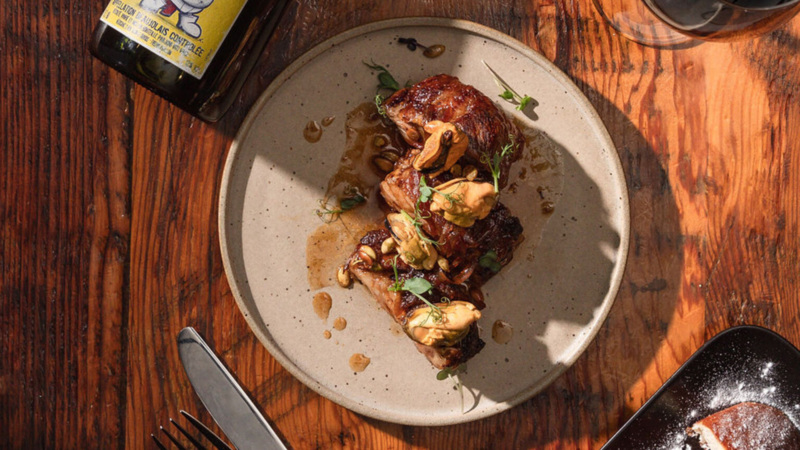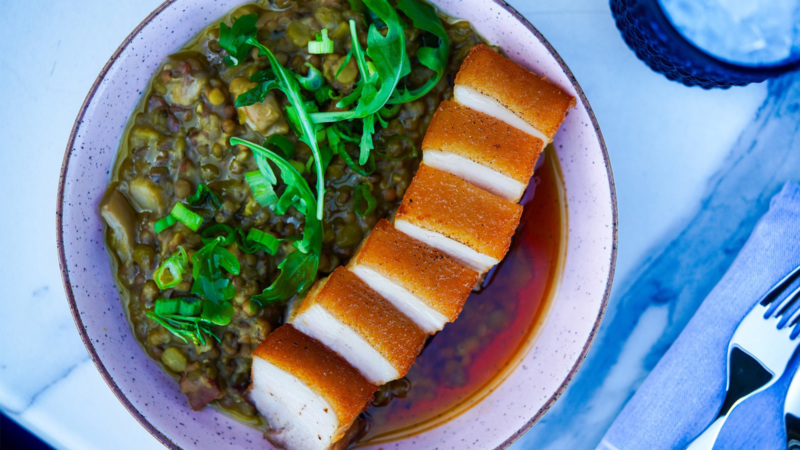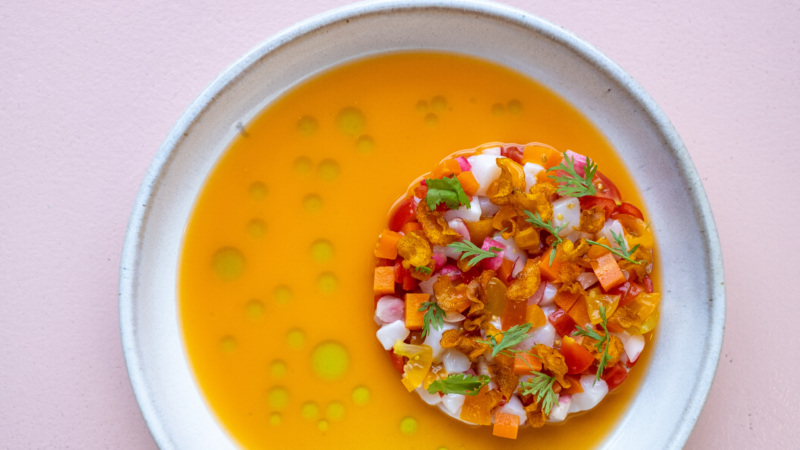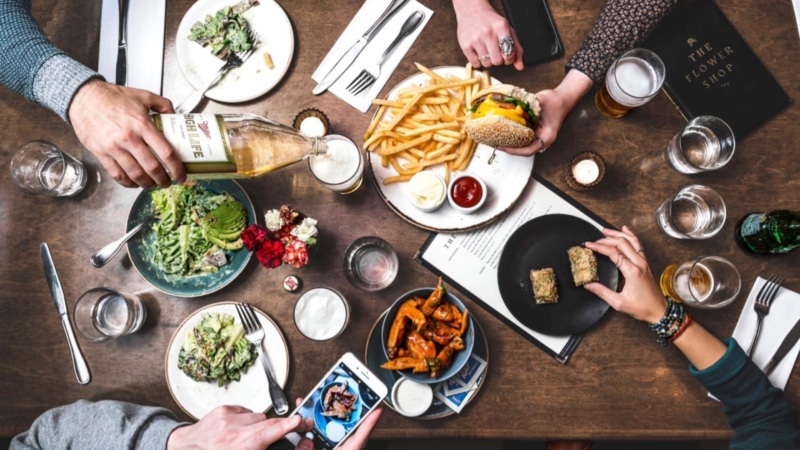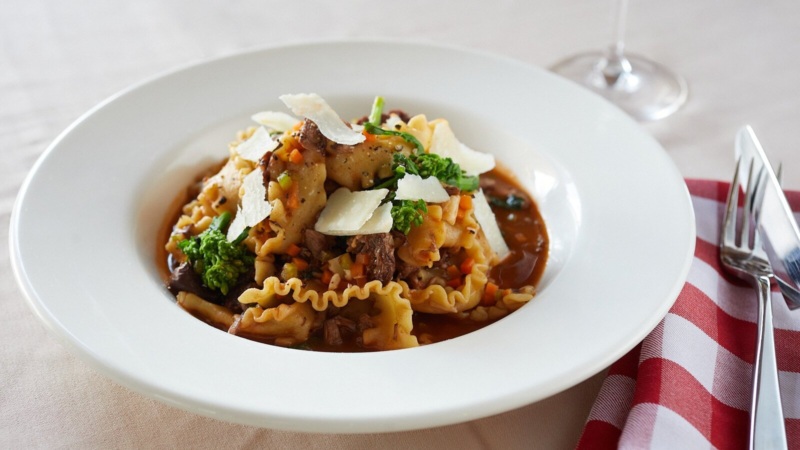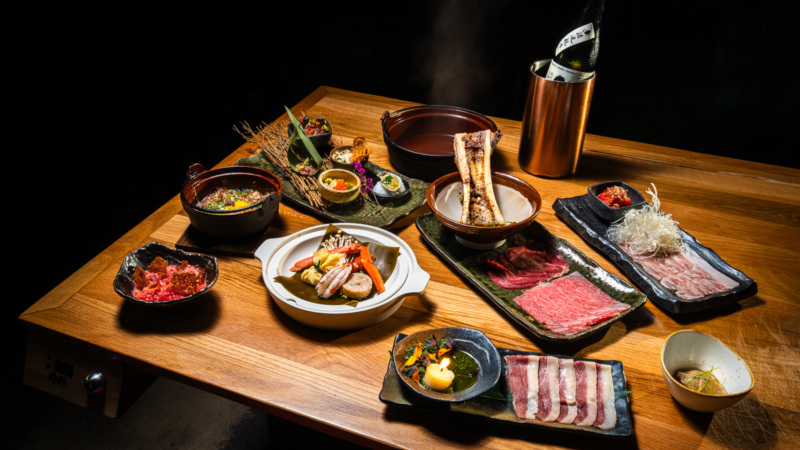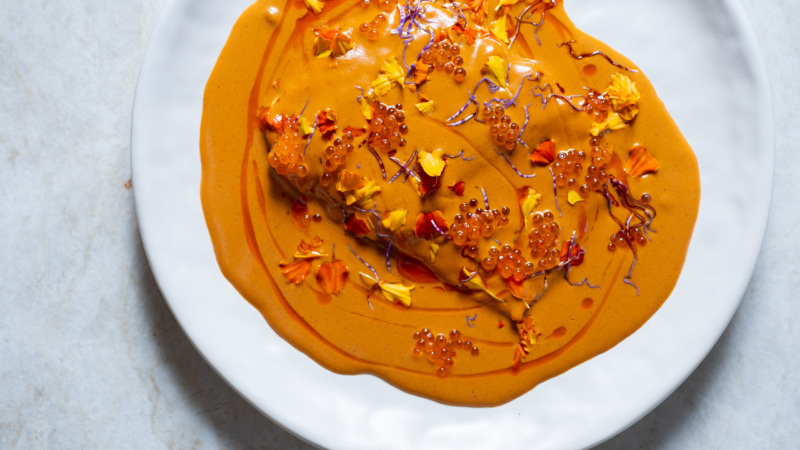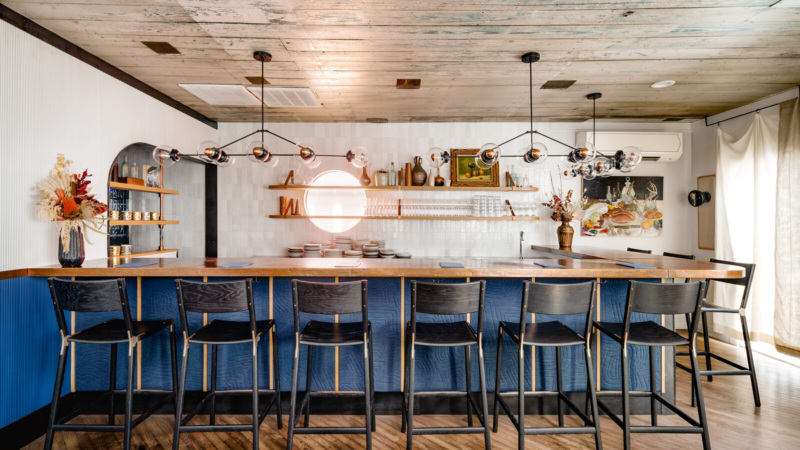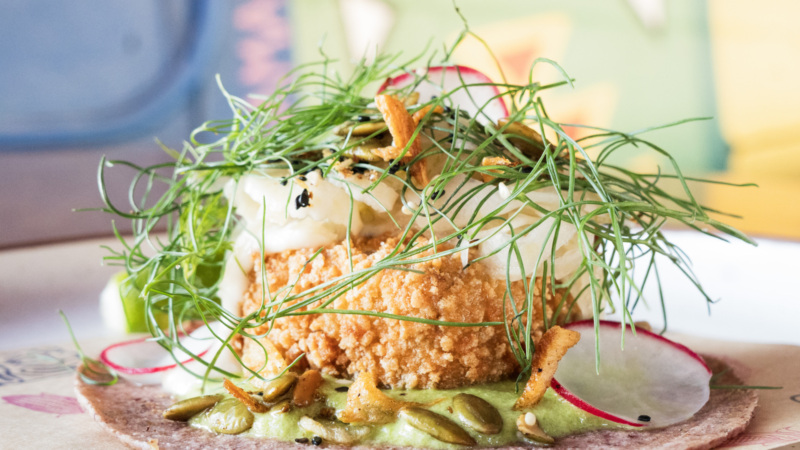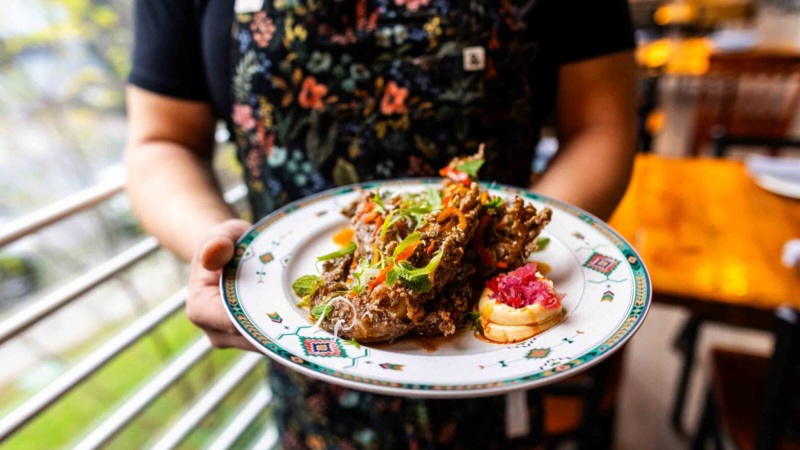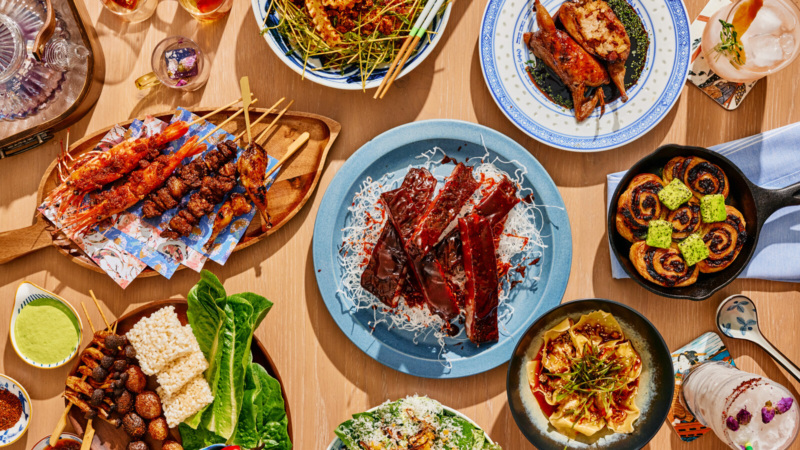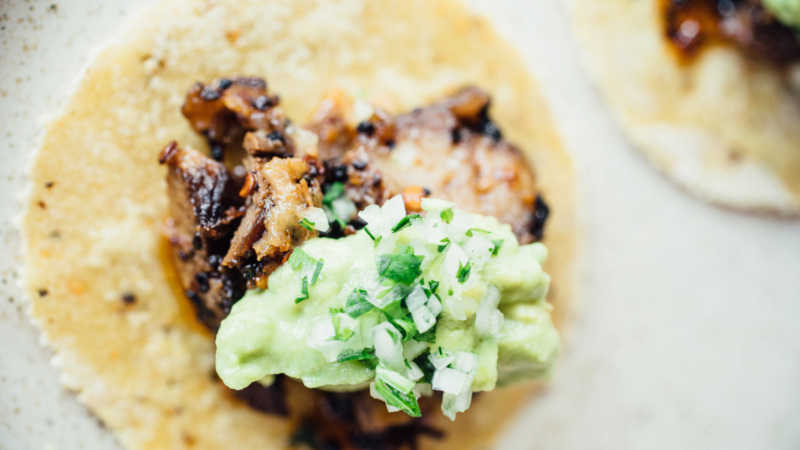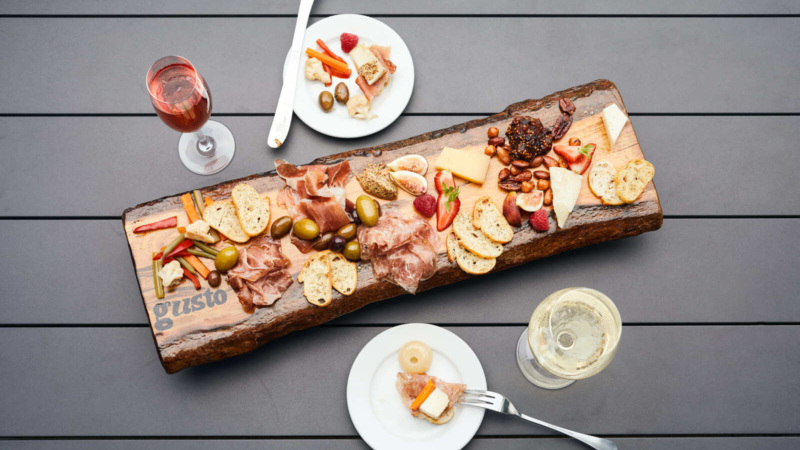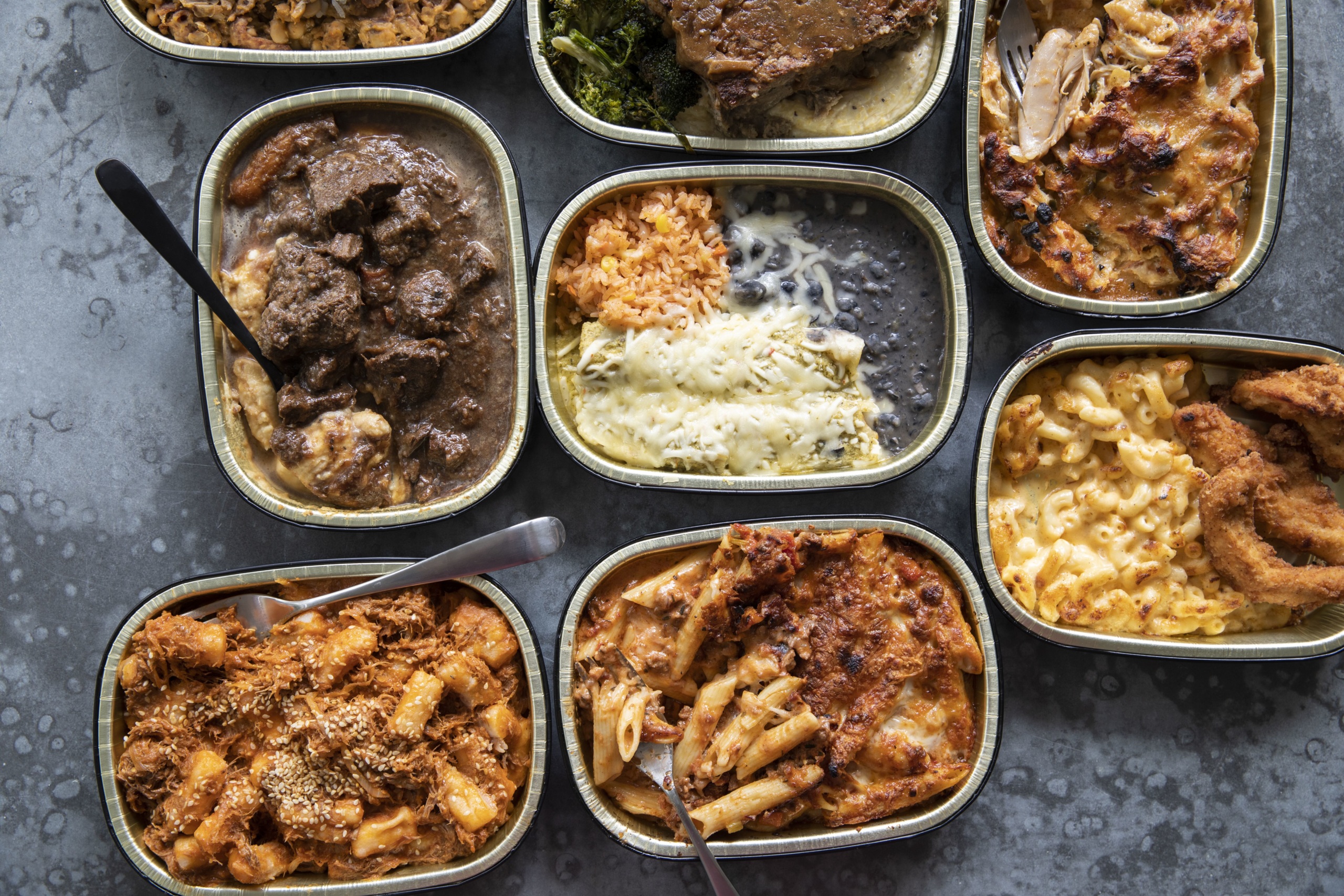
The Texas Grocery Chain That Has Been a ‘Lifeline’ for Local Restaurants
A funny thing happened while chef Chris Ostlund was researching and developing Tatsu-ya branded meals to be sold at local H-E-B grocery stores in Austin.
“We packed the food up the way we wanted it … and then we realized there wasn’t a single microwave in the entire company,” said Ostlund, director of culinary production for Ramen Tatsu-ya, Kemuri Tatsu-ya, DipDipDip Tastu-ya, and Domo Alley-Gato. “We had to buy one to test the product and see how it worked.”
The process of researching, developing, and ultimately delivering chef-prepared, restaurant-quality meals to be sold at grocery stores is a process that — under normal circumstances — might take up to a full year from concept to store shelf.
But that timeline shrank to just days when the coronavirus pandemic struck, forcing thousands of restaurants and bars to close their dining rooms last month.
Ostlund, along with chefs from 13 other Texas restaurants, rushed to produce meals that would be sold at more than 50 H-E-B grocery stores statewide, with 100% of the sales going directly back to the restaurants themselves.
The idea for this pilot project came from H-E-B’s vice president of deli, bakery, and restaurants, Kevin Blessing, who saw it as a way to support local independent restaurants facing closures and layoffs. In mid-March, H-E-B began reaching out to a number of local chefs in Austin, Houston, and San Antonio, to see if they’d be interested. Other participating restaurants include Max & Louie’s New York Diner in San Antonio, Brennan’s in Houston, and Fresa’s Chicken in Austin. San Antonio-based chef Johnny Hernandez is also selling his handmade corn tortillas, along with al pastor taco kits and other items, in San Antonio.
H-E-B worked closely with each restaurant and chef to help them develop and package dishes that would meet the stringent guidelines and labeling needs of foods sold in grocery stores.
One of the first to get his dishes on H-E-B store shelves in Houston was James Beard award-winning chef Chris Shepherd of Underbelly Hospitality. In just five days, Shepherd and his team developed dishes that would both remind diners of their previous dining experiences at his restaurants, One Fifth, UB Preserv, Georgia James, and The Hay Merchant, and bring some much-needed comfort.
“I was trying to manipulate how our product would be perceived at home and making dishes that are good for that and a great representation of what we do,” Shepherd said. “It gives people a sense of normalcy. It gives people a taste of what they were used to, or maybe to something different. It brings them back to at time, to this restaurant they maybe used to go to all the time.”
Dishes from Underbelly include spicy Korean braised beef with dumplings, Wagyu burger helper, and a bacon tater tot casserole. They first appeared in stores on April 2 and sold out shortly thereafter on the first day.
“It’s been a lifeline for us,” Shepherd said. Right now, Underbelly is still selling takeout daily from its Hay Market location. The H-E-B pilot and takeout sales have allowed him to keep about 30 managers employed, and he hopes he can bring back some of the 170 employees who were laid off because of the shutdown. The program has been so successful, there’s talk of expanding the meals to more than just the initial 10 stores.
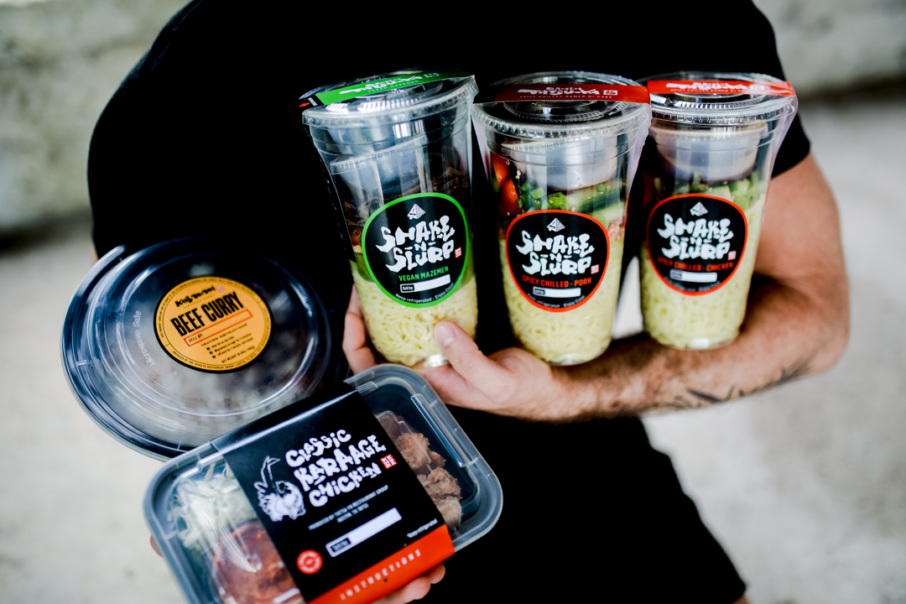
In Austin, Tatsu-ya is putting up classic karaage chicken from Kemuri Tatsu-ya, Japanese beef curry from Domo Alley-Gato, and “Shake & Slurp” cups of chilled ramen noodles from Ramen Tatsu-ya. The first meals went into eight Austin-area stores on April 10.
Ostlund and his team are constantly testing out the products, eating them for daily family meal every chance they can, and finding ways to constantly improve the recipes. Being a part of H-E-B’s pilot has enabled Tatsu-ya to rehire four cooks and a driver. “It’s been a gamechanger for sure,” Ostlund said.
H-E-B said it’s seen “big demand” for the restaurant meals in participating stores.
“There is a lot of pride in food, especially in Texas,” said Dya Campos, director of government and public affairs for H-E-B. “This program was extremely popular because people really want to support their local restaurants and they are craving those items.”
H-E-B, Underbelly, and Tatsu-ya declined to disclose sales numbers, but both Shepherd and Ostlund said they’d want to see this program continue even after quarantine restrictions are lifted. H-E-B’s Campos said it’s something the company is considering, but there aren’t definitive plans in place right now.
“I would love to do this for the long term,” Shepherd said. “I would love to find a way to continue to do it. At some point I would love for [H-E-B] to make money on it, too.”
And even though it’s been a challenge, at times, to translate the restaurant dining experience into something that can be sold on a grocery shelf, it’s something the chefs are committed to perfecting over time.
“The brand is about the experience of eating our food in a curated space, but as we figure out how to portray that brand in a packaged food and how to meet or exceed quality expectations, we just want to give people what they want,” Ostlund said.
Deanna Ting is a Resy staff writer. Follow her on Instagram and Twitter. Follow @Resy, too.

